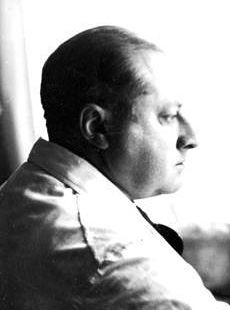
Gottfried Benn was a German poet, essayist, and physician. He was nominated for the Nobel Prize in Literature five times. He was awarded the Georg Büchner Prize in 1951.
New German Cinema is a period in German cinema which lasted from 1962 to 1982, in which a new generation of directors emerged who, working with low budgets, and influenced by the French New Wave and Italian Neorealism, gained notice by producing a number of "small" motion pictures that caught the attention of art house audiences. These filmmakers included Percy Adlon, Harun Farocki, Rainer Werner Fassbinder, Peter Fleischmann, Werner Herzog, Alexander Kluge, Ulli Lommel, Wolfgang Petersen, Volker Schlöndorff, Helma Sanders-Brahms, Werner Schroeter, Hans-Jürgen Syberberg, Margarethe von Trotta and Wim Wenders. As a result of the attention they garnered, they were able to create better-financed productions which were backed by the big US studios. However, most of these larger films were commercial failures and the movement was heavily dependent on subsidies. By 1977, 80% of a budget for a typical German film was ensured by a subsidy.

DEFA was the state-owned film studio of the German Democratic Republic throughout the country's existence.
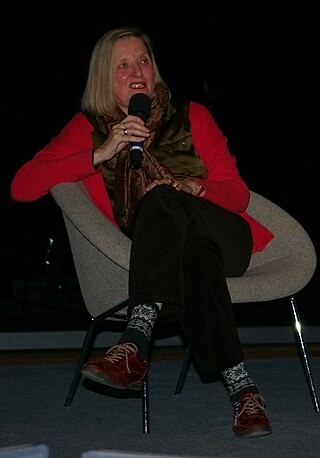
Helma Sanders-Brahms was a German film director, screenwriter and producer.

Helke Sander is a German feminist film director, author, actress, activist, and educator. She is known primarily for her documentary work and contributions to the women's movement in the seventies and eighties.

Ernst Gerhard Ludwig Jacobi-Scherbening, professionally called Ernst Jacobi, was a German actor. He was known for serious character roles, especially in the 1979 film The Tin Drum, as Hans in Germany, Pale Mother (1980), as Adolf Hitler in Hamsun (1996), and as the narrator in The White Ribbon (2009). He appeared in over 200 television productions and worked at the Burgtheater in Vienna from 1977 to 1987, and at the Schauspielhaus Zürich from 1987 to 1992. In 1975 he won the Berliner Kunstpreis for his portrayal of Alexander März in the television film Das Leben des schizophrenen Dichters Alexander März.

The 32nd annual Berlin International Film Festival was held from 12–23 February 1982. The Golden Bear was awarded to the West German film Veronika Voss directed by Rainer Werner Fassbinder.

Rolf Hoppe was a prolific German stage, cinema, and television actor, who played in more than 400 films in a career which spanned over six decades.

No Mercy, No Future is a 1981 West German drama film directed by Helma Sanders-Brahms.
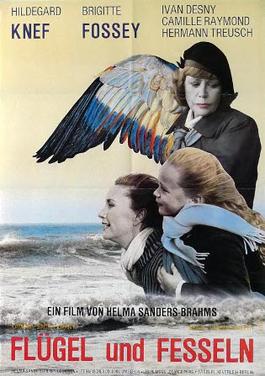
The Future of Emily is a 1984 West German drama film directed by Helma Sanders-Brahms. Barbara Kosta, author of Recasting Autobiography: Women's Counterfictions in Contemporary German Literature and Film, states that The Future of Emily, along with Laputa, "pursue[s] traditional narrative patterns" compared to Germany, Pale Mother, and "lapse[s] further into awkward melodrama." Christian Schröder, author of Hildegard Knef: Mir sollten sämtliche Wunder begegnen, wrote that the film appears "very French" and "very German" at the same time and compared it to the films of Éric Rohmer.

My Heart Is Mine Alone is a 1997 German experimental drama film directed by Helma Sanders-Brahms. A 1997 issue of Jewish Currents wrote that the film is "a kind of German movie that usually requires more than one screening to decipher and is made for avant-garde devotees."

Earthquake in Chile is a 1975 West German television drama film directed by Helma Sanders-Brahms. The film is an adaptation of the Heinrich von Kleist novella The Earthquake in Chile.
Kurt Horres was a German stage director, particularly of opera, and opera manager. He held positions as general manager at the Staatstheater Darmstadt, the Hamburg State Opera, and from 1986 to 1996 at the Deutsche Oper am Rhein. He focused on opera of the 20th century, including composers who had been banned during the Nazi regime, such as Korngold's Die tote Stadt, and literature operas including Gottfried von Einem's Kabale und Liebe, and the world premieres of Blacher's Yvonne, Prinzessin von Burgund, and Klebe's Das Mädchen aus Domrémy. He taught stage direction at the Folkwang University.
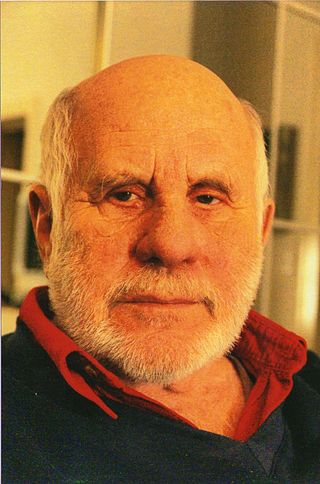
Hans Häußler was a German journalist, painter, musician, comedian, director and author of radio plays.
The Norwich Women's Film Weekend was a two-day annual event that ran for 10 years, from 1979 to 1989, at Cinema City in Norwich. It was organised to 'promote and encourage women film-makers and present the audience with films dealing with women's issues', as the first programme (1979) put it. It was the first event created, curated, managed and implemented by a group called Cinewomen. The NWFW lasted longer than any other women's film festival in the UK and forms part of the history of women's cinema and feminism more generally, and also the history of culture and the arts in Norwich.
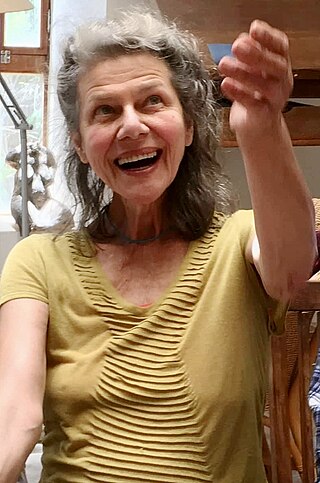
Christel Magdalena Huber, known as Grischa Huber was a German theatre and film actress. She is known for the lead role in the film Under the Pavement Lies the Strand, a "cult film of the German feminist movement", which earned her the Filmband in Gold in 1975.












